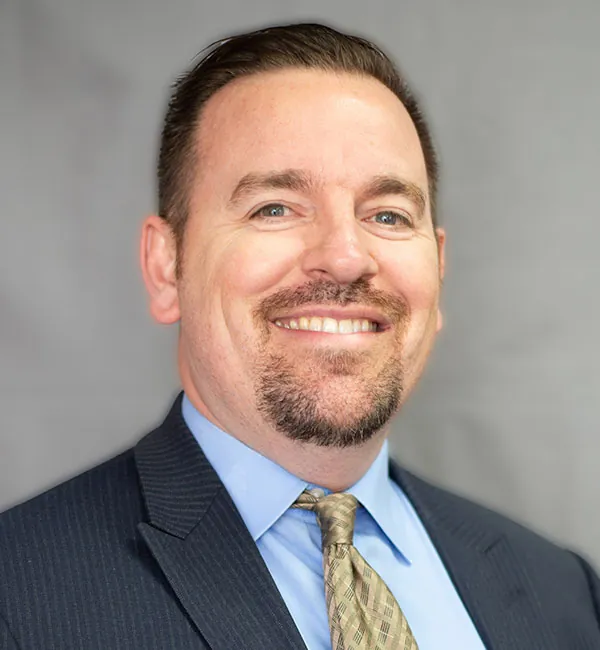When a two-ton vehicle collides with a lightweight motorcycle, the results are usually tragic for the rider. During collisions, the motorcycle rider fatality rate is thirty times higher than the vehicle occupant fatality rate.
The serious injury rate is even higher. Quite frankly, victims and their families need money to pay medical bills and otherwise put their lives back together. The person or entity responsible for the accident should pay these bills.
Furthermore, almost all motorcycle riders eventually go down. When that happens, the tortfeasor (negligent driver) usually says something like “I didn’t see you” or “You came out of nowhere.” Tortfeasors hope these statements shift the blame to the rider. But in most cases, they are simply admitting their own negligence. More on that below.
If negligence causes a motorcycle wreck, the victim is entitled to compensation. But the road to fair compensation is often long and bumpy. A dedicated London, OH, motorcycle accident lawyer from Kruger & Hodges stands by victims from start to finish.
Since motorcycle crash claims are very complex, many lawyers look for a quick and easy way out. But our team is not satisfied with anything less than the best possible results under the circumstances.
What to Do After a Motorcycle Crash
A good start usually means a good end. A positive start in a motorcycle crash claim is up to the victim. A London, OH, motorcycle accident lawyer picks up the ball and runs with it. Depending on what victims do and do not do after a wreck, an attorney could take over in a good field position or a bad field position.
First and foremost, victims should always get medical help, even if they don’t “feel” injured. The tragic 1972 death of rock-and-roll bassist Berry Oakly is a good example.
Oakley was in a “minor” motorcycle accident in Georgia. He declined medical treatment at the scene and even caught a ride home with a friend. Unbeknownst to him, he had a massive head injury that killed him less than a day later.
Oakley’s fatal crash was only a few blocks away from the site of bandmate Duane Allmand’s fatal motorcycle crash. Allmand went down one year to the day earlier than Oakley.
It is also important for victims to see doctors who focus on collision-related injuries. At Kruger & Hodges, we quickly connect victims with the medical help they need.
Prompt medical attention is also important for legal reasons. If victims do not immediately see doctors, insurance company lawyers often later argue that their injuries are exaggerated.
On another immediate post-crash legal note, victims should not make any statements to anyone. They should only directly and narrowly answer an emergency responder’s questions.
To express sympathy, many people apologize to the other driver, especially if that driver was injured. An insurance company lawyer can twist that apology into an admission of liability later.
For the same reason, victims should not give statements to insurance company adjusters. These professionals also know how to twist words into damaging liability admissions.
Some policies require victims to immediately report claims to their own adjusters. If that is the case, keep this conversation brief and general (e.g., “I was in an accident at XYZ location.”) Let your attorney add the details later.
For a free legal consultation, call 513-894-3333
Arranging for Medical Treatment
Our London, OH, motorcycle accident lawyers put first things first. So, our first priority is your medical care.
As mentioned, only doctors who focus on collision-related conditions should treat collision victims. The aforementioned undiagnosed head injury is a good example.
Initially, head injury symptoms resemble accident shock, a condition that goes away on its own. Furthermore, since a car crash releases a surge of adrenaline, many victims tell their doctors they “feel fine.” If doctors intervene early, they can usually manage head injury symptoms. If doctors get a late start, that’s usually not possible.
Head injuries and other collision-related injuries are difficult and expensive to treat. The average injury-related medical bill exceeds $40,000. For liability reasons, many group health insurance policies do not cover injury-related costs.
If victims are financially responsible for these costs from the start, the financial pressure makes injury recovery almost impossible. So, our team works with top-notch doctors who defer billing, or at least collection, until the case is resolved.
Additionally, our lawyers negotiate with doctors and lower their fees. Because of this reduction, victims might get to keep more of their settlement money, due to Ohio’s complex collateral source rule.
London Personal Injury Lawyer Near Me 513-894-3333
Evaluating a Case
Medical bills must be paid eventually. So, when the victim’s physical health is in good hands, we get to work on the legal aspects of your case.
Initially, there is a difference between fault and liability. Even if an insurance adjuster or emergency responder says you were at fault for the wreck, an attorney should still evaluate your case.
A wrong-way crash is a good example. Assume Bill, the motorcycle rider passes a slow-moving vehicle and collides with Ted the truck driver. Based on the evidence at the scene, Bill was at fault for the wreck because he passed illegally. But he may not be liable for damages. Ted had a duty of care to avoid hitting Bill if possible. So, Ted could be legally responsible for the wreck, even though he did not violate a traffic or other law.
After this initial evaluation, constructing a negligence case is usually the next step. An ordinary negligence claim in Ohio has four basic elements:
- Duty: We mentioned the duty of care above. Ohio law imposes a duty of reasonable care on most drivers. They should avoid crashes if possible, follow the formal and informal rules of the road, and drive defensively. Commercial operators, like Uber drivers, usually have a higher duty of care.
- Breach: Most, but not all, driving mistakes are a breach of care. For example, if Sarah glanced at her phone to swipe away a call in the moments before she hit Mary, Sarah was legally distracted. She was focused on something other than driving. But most jurors would not see that momentary lapse as a lack of care. If Sarah was on her phone for several blocks prior to the wreck, that’s different.
- Cause: A victim is eligible for compensation if driver negligence substantially caused the wreck. Let’s go back to Sarah and Mary. If Sarah did not see Mary until the last minute and, because the road was wet, she could not stop, or bad weather contributed to the wreck. But Sarah’s distraction substantially caused it. This element also includes legal causation. If Mary’s ambulance crashes on the way to the hospital, Sarah is not legally responsible for these damages. An ambulance crash was not foreseeable.
- Damage: Compensation for economic losses, such as medical bills, and noneconomic losses, such as pain and suffering, is usually available if the victim sustained a physical injury or suffered some property damage. Any physical damage is sufficient. A near-miss might be actionable as well under a theory like negligent infliction of emotional distress.
Solid evidence is the foundation of an ordinary negligence claim. Once again, let’s look at the Sarah/Mary distracted driving wreck.
To prove that Sarah was so distracted that she breached her duty of care, a London, OH, motorcycle accident lawyer would probably examine the device use log. This log clearly shows when and how Sarah used her device while she was behind the wheel.
The burden of proof in a negligence claim is only a preponderance of the evidence (more likely than not). So, a little proof goes a long way.
Unless an attorney acts quickly, even this small amount of proof may be unavailable. Sarah might “accidentally” delete items from her device use log. The real log is still accessible, but this access is very time-consuming and expensive.
To prevent such a loss, an attorney sends a spoliation letter to a tortfeasor or to the tortfeasor’s insurance company. This letter forces the recipient to preserve all potential physical evidence, including a device use log, for future inspection.
Click to contact our personal injury lawyers today
Starting a Case
Once medical treatment and case evaluation are complete, attorneys usually begin settlement negotiations with insurance companies.
An out-of-court settlement, especially after an attorney knows the true value of a case, is not an easy way out. These resolutions end cases sooner, so victims can move on with their lives sooner.
Additionally, these resolutions avoid the need for a risky and emotional trial. A trial is a gamble. No one can predict how a jury will react to the evidence and parties in a case. Furthermore, traumatized motorcycle crash victims have been through enough already. They should not go through an emotional courtroom showdown on top of everything else.
Occasionally, early negotiations result in a fair settlement. However, because of the complex legal and evidence issues outlined above, early and fair settlements are few and far between. So, attorneys file legal paperwork to jumpstart stalled negotiations.
This filing also triggers a discovery requirement. Both sides must place all their cards face-up on the table. Therefore, additional evidence is available, strengthening the victim’s case and driving up its settlement value.
Complete a Free Case Evaluation form now
Ending a Case
In most jurisdictions, a legal filing also triggers a mandatory mediation requirement. Alternatively, once a court gets involved, attorneys can file motions requesting mediation, which judges almost always grant.
Earlier negotiations often stall or break down because insurance companies make unreasonable low-ball offers. Or, they make take-it-or-leave-it offers that are not subject to negotiation. During mediation, insurance companies have a duty to negotiate in good faith. The mediator, who basically represents the judge, will not allow such conduct.
In other words, during mediation, the insurance company must take the matter seriously, make legitimate offers, and be willing to compromise. Because of the good faith negotiation duty, mediation almost always succeeds, even if informal talks have broken off completely.
Count on a Thorough London Motorcycle Accident Lawyer
Injury victims are entitled to substantial compensation. For a free consultation with an experienced motorcycle accident lawyer in London, contact Kruger & Hodges, Attorneys at Law, by going online or calling 513-894-3333. The sooner you reach out to us, the sooner we start working for you.
Call or text 513-894-3333 or complete a Free Case Evaluation form


